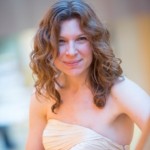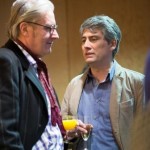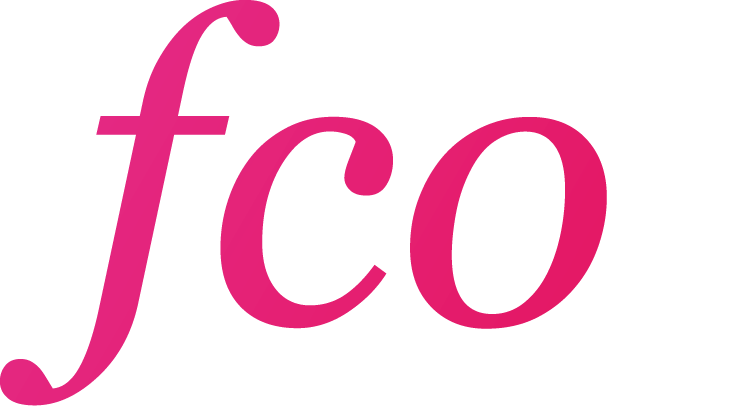6th June 2014, 7.30pm: Canterbury Cathedral Quire
Passion & Celebration ‘A Concert for Jake’
Programme
To hear Jacob Barnes play the piano was to be invited to accompany him into the heart of the music. There was special reason to recall what we had discovered there with him, when we heard of his death from cancer in 2011, aged 21. ‘A Concert for Jake’ in celebration of his life and in support of the Teenage Cancer Trust, was presented by Canterbury’s Festival Chamber Orchestra and guest soloists in the Cathedral Quire on Friday June 6th.
The Orchestra was conducted throughout by Stephen Barlow, who began his musical career as a choirboy in the Cathedral. In this wonderful stone building music creates echoes – lingering memories to which musicians must defer. From the opening moment when John Harle filled the vast Cathedral space with the solo soprano saxophone flourishes in his own work Illyria, it was clear that all the musicians understood that the music must be sensitive to the resonance.
Specially for this event, John had also set O Mistress Mine and Little Tiny Boy for a selection of instruments and counter tenor Michael Chance, and Shakespeare’s Since First I Saw Your Face for saxophone with soprano Sarah Leonard and chamber organ played by David Flood. John exploited the similar tones of saxophone and Sarah’s voice to great effect in this work. Overall, John achieved clarity within the echoing acoustic with simple harmonies, a steady rhythmic pulse and lyrical phrasing.
Irish composer Michael McGlynn’s contemplative piece Aisling was beautifully played by FCO’s founder, oboist Ian Crowther, and harpist Mary Morley.
Seldom can J.S.Bach’s Agnus Dei and Qui Sedes ad Dextram Patris from the B minor Mass have been sung with the pure tone and depth of expression with which Michael Chance imbued his performance. The first part of the programme concluded with John Harle’s setting of the anonymous poem Three Ravens, followed by Silencium, all performed by Sarah Leonard, saxophone and other instruments. How very special it was to be in the presence of such a number of outstanding musicians dedicating the evening to the memory of Jacob.
Beethoven’s Third Symphony – Eroica – stood alone in the second part of this event. Stephen Barlow chose a steady pace in all four movements, making it possible for details in the score to be heard clearly, so that the performance appeared fresh and uncluttered. By the end of the work, musicians and audience together had made a journey from the confidence of the symphony’s opening chords, through dissonant destruction and sorrow to hope and renewal. How apt was this reflection on the turbulence inherent in grief and loss.
Truly, the excellence of this concert is never to be forgotten. The magnificent Festival Chamber Orchestra and Jacob’s friends in music gave their all.
Dr Rosemary Dunn 10th June 2014
26th April 2014, 7.30pm: Colyer-Fergusson Hall
Musical Magnificence! Camilla Pay
Programme
The Colyer-Fergusson Hall’s splendid acoustic responds most effectively to instrumentalists’ perfect intonation and precise attack, which the Festival Chamber Orchestra, under the baton of Anthony Halstead, produced unerringly throughout their concert on Saturday April 26th.
The first item was Rossini’s Overture ‘La Cenerentola’ (Cinderella), where the orchestra committed themselves to the extensive dynamic range this delightfully-nuanced piece of music demands. There was a poignant little work next, by Michael McgLynn. It was dedicated to the memory of Derek Bell of The Chieftains, friend of the Crowther Quintet (Ian Crowther is the founder of the FCO). The solo harp was played by Canterbury harpist Camilla Pay, fromPatrixbourne, and who now enjoys an international career.
Camilla was joined by Kent flautist Rosemary Rathbone for Mozart’s Concerto for flute and harp – the only piece he wrote for harp. The excellence of their combined musicianship created the perfect subtlety of expression. The whole work, with its glorious slow movement, necessitates a sympathetic balance of sound between the orchestra and the much softer-toned harp. That this is very tricky to achieve, was evidenced in a few short moments of imbalance here and there.
The FCO plans to gradually perform all Beethoven’s symphonies and, after the interval, his Fifth Symphony was presented, (the ‘fate knocking at the door’ symphony). It marks the first time trombones and, indeed the piccolo featured right at the end, had appeared in a symphony. How many times, though, has one heard that exciting and innovative work treated as aggressive and solemn! But not with Anthony Halstead directing. Everything that is thrilling about the symphony – its rhythmic drive, its brilliant writing for horns and then the brass ‘chorus’ at the start of the last movement were suitably electrifying. Yet, the exquisite slow movement’s melodic themes and all the gentler and dance-like sections were brought to the fore too. It was memorable.
If you are thinking of going to a concert – do make Canterbury’s Festival Chamber Orchestra your first choice. You will not be disappointed.
Rosemary Dunn
20th April 2013, 7.30pm; Colyer-Fergusson Hall
Festival Chamber Orchestra Gala Concert ‘Twenty One Years’:
With Alison Teale & The Crowther Wind Quintet
Programme Recording of FCO in Rehearsal for Dario Marianelli’s ‘Twenty One Years’
It is encouraging to read that there were twenty-one (mostly local) sponsors willing to support Canterbury’s Festival Chamber Orchestra for their 21st anniversary concert on Saturday April 20th. The brain-child of oboist Ian Crowther, the orchestra comprises local musicians of the highest calibre, ensuring fine performances of its varied repertoire.
Directed by internationally-respected Anthony Halstead, the Festival Chamber Orchestra presented a programme ranging from their Baroque opening piece – ‘The Arrival of the Queen of Sheba’ by Handel, to the world première of Dario Marianelli’s ‘Twenty One Years’ for wind quintet and strings – specially commissioned to celebrate the occasion. The second piece, Piazzolla’s ‘Night Club 1960’, arranged for the orchestra by local musician Stephen Matthews, featured a solo part for cor anglais – an  instrument rarely heard away from its usual place in an orchestra. Alison Teale’s evocative performance left us all wanting more, so the choice of Honneger’s ‘Concerto da Camera’ for flute, cor anglais and strings, was a wise choice after the interval, and which also highlighted the expressive playing of flautist Rosemary Rathbone.
instrument rarely heard away from its usual place in an orchestra. Alison Teale’s evocative performance left us all wanting more, so the choice of Honneger’s ‘Concerto da Camera’ for flute, cor anglais and strings, was a wise choice after the interval, and which also highlighted the expressive playing of flautist Rosemary Rathbone.
Some have disputed that Mozart was the composer of ‘Sinfonia Concertante in E flat major’ (K.297b), for wind quintet and orchestra; nevertheless, its substantial first movement, slow movement and lively finale brought the first-rate musicianship of the
 Crowther Wind Quintet right to the fore. Dario Marianelli, whose music for films such as ‘Atonement’ and ‘Quartet’ is familiar to many, was present to hear the two works of his. His premièred piece was preceded by a cheekily-rhythmic ‘Minuetto’ from his Wind Quintet. Clearly, Dario is a composer fully deserving of the wards he has received; these works had an undeniably contemporary feel, yet were immediately attractive and interesting.
Crowther Wind Quintet right to the fore. Dario Marianelli, whose music for films such as ‘Atonement’ and ‘Quartet’ is familiar to many, was present to hear the two works of his. His premièred piece was preceded by a cheekily-rhythmic ‘Minuetto’ from his Wind Quintet. Clearly, Dario is a composer fully deserving of the wards he has received; these works had an undeniably contemporary feel, yet were immediately attractive and interesting.
Mozart’s Symphony No.40 in G minor, the final work in the concert, provided firm proof of Anthony Halstead’s success in his life-long pursuit of authentically-styled performance. From the familiar quiet poignancy of the opening bars played suitably agitato, to the rapid passages in the finale, the Festival Chamber Orchestra’s response to the intricacies of this emotionally-charged work was admirable.
The wonderful acoustic and friendly ambience of the new Colyer-Fergusson Hall makes it a great asset to East Kent. A fine oboe soloist in his own right, Ian Crowther is to be congratulated on having the vision to create the Crowther Wind Quintet and the Festival Concert Orchestra. The success of their 21st Anniversary concert in the new venue provides ample proof that Canterbury is home to progressive programming and high-quality performances of great music.
Rosemary Dunn 22 April 2013
Friday@7 November 2nd 2012, 7.00pm; St.Mary Bredin Church, Canterbury
Carol Basden, Clarinet Ian Crowther Oboe & Cor Anglais:
FCO String Quartet:Jeremy Ovenden First Violin, Florianne Peycelon Second Violin,
Ros Hanson-Laurent Viola, Gina Harris Cello
Programme Snippet of Two Grooves by Paul Patterson
On a November evening it was pleasant to be able to go to the warm and welcoming St Mary Bredin Church, in anticipation of another excellent concert by the Festival Chamber Orchestra’s string quartet, also featuring its Founder, oboist Ian Crowther. Mozart’s Quintet for Clarinet and Strings opened the evening. Carol Basden was the clarinet soloist and performed with accomplished musicality and a beautifully rounded tone. After the interval she treated us to Stravinsky’s ‘Three Pieces for Solo Clarinet’, demonstrating her virtuosic playing to the full.
Paul Patterson, one of the UK’s most respected composers, with an enduring association with Canterbury, was present for the performance of his ‘Two Grooves’, written for string trio, cor anglais solo in the first movement and oboe solo in the second, both played by Ian Crowther. The group gave the smoothly nostalgic first movement ‘Blues’ exactly the right level of expression and, in the second – ‘Romp’, played the fast and tricky rhythms with such élan that, as the last note sounded, a cheer of delight and appreciation erupted spontaneously from the audience. How often does that happen in contemporary music?
The first two movements of Dvorak’s popular ‘American Quartet’ was an excellent choice to display the assured and balanced ensemble playing of the FCO string quartet of Jeremy Ovenden, Florianne Peycelon, Ros Hanson-Laurent and Gina Harris, as they revealed the warm harmonies and folk-like melodies so familiar in that composer’s music.
Ian Crowther chose to end the concert with a Divertimento in C for Oboe and Strings by the little known Finnish composer, Bernard Crusell (contemporaneous with Beethoven). Clearly, there was great enjoyment in performing this light-hearted work, and it rounded off a very interesting evening. Rooted in Canterbury and ten years old this year, the FCO is one of the great musical assets of the area.
Dr.Rosemary Dunn
Music to Feed the Soul-11th February 2012
with Michael Chance (countertenor) Ian Crowther (Oboe)
Chance is a Fine Thing
“Despite the freezing conditions, a large audience turned out for the concert last Saturday in the Shirley Hall, given by the Festival Chamber Orchestra. Not altogether surprising, I suppose, as Ian Crowther had managed to persuade one of the country’s leading counter-tenors, Michael Chance, to take part as the principal soloist for the evening.
The concert began with a fine performance of Corelli’s famous ‘Christmas Concerto’,
in which three of the resident team, Jeremy Ovenden and Floriane Peycelon, violins and Julia Vohralik cello, were the excellent soloists, with some especially memorable
playing from the cellist in the opening movement. This was followed by an oddity in the shape of Elgar’s Soliloquy, written for what was to have been a Suite for Solo Oboe and String Orchestra for the famous oboist Leon Goossens; sadly it was never completed, and only this fragment, intended as the 2nd movement, survived in manuscript, a tantalising ‘taster’ for what might have been. Well worth an airing, but possibly a little out of place in this particular programme, sandwiched as it was between the Corelli and the main work in the programme, Vivaldi’s Stabat Mater.
Michael Chance remains one of pre-eminent counter-tenors in the world, and this was a wonderful opportunity to hear him at close quarters. Even in the unforgiving acoustic of the Shirley Hall he didn’t disappoint. From the moment he took centre stage to perform Vivaldi’s beautiful setting of the 13th-century Stabat Mater poem, he commanded our attention, drawing us into the grief-stricken world of Mary’s suffering at the foot of the cross, with some exquisite singing and real insight into the text. He rightly received a prolonged ovation at the conclusion, having raised the bar for anything that might follow after the interval.
That said, the second half of the concert was certainly worth waiting for. Bach’s Concerto in D minor for Violin and Oboe, once again featuring soloists Jeremy Ovenden and Ian Crowther, was given a very stylish rendition; my only slight quibble here was that I thought the Adagio second movement was a shade perfunctory, and could have been taken rather more slowly, giving time for greater expression. Apart from that reservation, there was much to enjoy in this performance.
This was followed by another couple of oddities. Not oddities in themselves of course – Gluck’s Dance of the Blessed Spirits and Samuel Barber’s famous Adagio for Strings are immensely popular, and worthy of inclusion in any programme – but perhaps not, I might suggest, tucked in between Bach and Albinoni. But both were given first-rate performances, with Rosemary Rathbone, as always, an excellent solo flautist and conducted (as was the whole concert) by the Festival Orchestra’s regular director and early music specialist, Anthony Halstead.
The concert ended with a splendid performance of Albinoni’s Oboe Concerto in D minor, once again with Ian Crowther as soloist. Ian is a familiar player on the concert scene in this area, and indeed the inspiration behind this whole series of concerts given by the Festival Chamber Orchestra and the Crowther Wind Quintet, but I have seldom heard him play more beautifully than he did here, especially in the second movement. Technically assured and stylishly executed. A real delight, and a perfect way to end a splendid evening of music making.“
Mark Deller
“I just wanted to drop you a short note to say how much we enjoyed the concert at the Shirley Hall. We are great fans of Michael Chance, but your oboe playing was beautiful, and introduced us to a truly great work, Elgar’s Solioquy. All in all, a wonderful evening.” audience member email
Movie Classics – 22nd October 2011
With John Harle (Saxophone) Ian Crowther (Oboe) Carol Basden (Clarinet)
Programme
“The concert was really very enjoyable and and an eye opener for me. I have heard John play before but never live. He was excellent esp the encore! Your programme was most cleverly arranged and kept us all interested. I have not heard the young clarinetist before and she should have good career ahead of her.” audience member email
‘…the excellence of the orchestra and its guest, all presided over by conductor Anthony Halstead’s inspiring skill, the evening was a guaranteed resounding success‘. Kent Messenger, November 10th 2011

